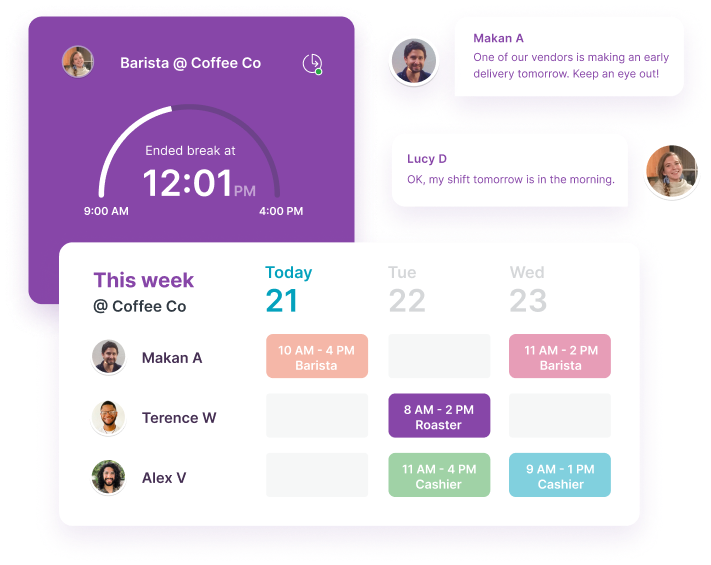How to Create a DEI Strategy: A Practical Guide for Small Businesses
Whether it's spending too much money on avocado toast or replacing the doorbell industry with texting, Millennials and Gen Z carry the blame for all kinds of things. But that's not an entirely fair representation of what these younger generations bring to the table. Fueled by TikToks and lattes, they are unwavering in their determination to create a more inclusive society. They are even willing to turn down jobs to get there. So if you haven't given your DEI strategy the attention it deserves, you better get it done, and fast.
As these generations gradually become the majority of the American workforce, their demand for inclusive workplaces is only growing. They transform diversity, equity and inclusion (DEI) from an underused corporate buzzword into a non-negotiable business practice.
While mega companies have entire teams dedicated to this practice, smaller companies can struggle to create an effective DEI strategy without additional resources. That doesn't seem very fair, so let's level the playing field. In this article, you'll learn how to create a DEI strategy and discover specific initiatives that will transform your company culture for the better.
Why a DEI strategy is important for small businessesFor those unfamiliar with the term, DEI stands for diversity, equity and inclusion. DEI practices aim to create equitable and inclusive work environments by addressing systemic barriers, promoting diversity, and ensuring equitable opportunities for all. Specifically, DEI practices strive to level the playing field for people from underrepresented groups such as BIPOC, LGBTQ+, women, people with disabilities, etc.
With value-driven Millennials and Gen Z pushing for more equitable work environments, DEI practices are finally gaining the momentum needed to make a difference. And, since these generations are expected to represent 75% of the American workforce by 2025, the message is clear. Small businesses need to invest in DEI initiatives now, to attract top talent and stay competitive for years to come.
5 advantages of DEIPromoting diversity, equity and inclusion (DEI) in your company goes beyond appeasement of the next generation of workers. By implementing a DEI strategy, you can expect to achieve a host of benefits for your business, your employees, and your customers.
Here are a few benefits you are sure to see by incorporating a solid DEI strategy:
1. More innovation and problem solvingA diverse team brings together people with different backgrounds, experiences and perspectives. It is these differences that can stimulate creativity and innovation. In turn, this creativity then leads to new ideas and more effective problem solving. Cognitive diversity (different ways of thinking) alone can improve your team's innovation by up to 20%. With all these new ideas, your business has an edge to stay ahead of the competition.
2. Welcome a wider clienteleWhen customers see themselves represented, they are more likely to engage with and support your business. It can open new doors, expand your reach, and drive your business growth. It is important to do this in a genuine and authentic way. Also consider the community you're in: if your milkshake business operates near your city's Little India, offer a mango lassi option in addition to plain old chocolate and vanilla.
3. Improved employee engagementInclusive work environments empower employees to be their most authentic selves, no matter what that looks like. It helps your employees feel valued and respected, and inspires them to go the extra mile at work. With a happier team, you can expect improved productivity and overall performance.
4. Attract top talentWhen considering their next employer, 67% of job seekers look for diverse organizations. By focusing on a DEI strategy and implementation, small businesses attract a more qualified and diverse pool of candidates...

Whether it's spending too much money on avocado toast or replacing the doorbell industry with texting, Millennials and Gen Z carry the blame for all kinds of things. But that's not an entirely fair representation of what these younger generations bring to the table. Fueled by TikToks and lattes, they are unwavering in their determination to create a more inclusive society. They are even willing to turn down jobs to get there. So if you haven't given your DEI strategy the attention it deserves, you better get it done, and fast.
As these generations gradually become the majority of the American workforce, their demand for inclusive workplaces is only growing. They transform diversity, equity and inclusion (DEI) from an underused corporate buzzword into a non-negotiable business practice.
While mega companies have entire teams dedicated to this practice, smaller companies can struggle to create an effective DEI strategy without additional resources. That doesn't seem very fair, so let's level the playing field. In this article, you'll learn how to create a DEI strategy and discover specific initiatives that will transform your company culture for the better.
Why a DEI strategy is important for small businessesFor those unfamiliar with the term, DEI stands for diversity, equity and inclusion. DEI practices aim to create equitable and inclusive work environments by addressing systemic barriers, promoting diversity, and ensuring equitable opportunities for all. Specifically, DEI practices strive to level the playing field for people from underrepresented groups such as BIPOC, LGBTQ+, women, people with disabilities, etc.
With value-driven Millennials and Gen Z pushing for more equitable work environments, DEI practices are finally gaining the momentum needed to make a difference. And, since these generations are expected to represent 75% of the American workforce by 2025, the message is clear. Small businesses need to invest in DEI initiatives now, to attract top talent and stay competitive for years to come.
5 advantages of DEIPromoting diversity, equity and inclusion (DEI) in your company goes beyond appeasement of the next generation of workers. By implementing a DEI strategy, you can expect to achieve a host of benefits for your business, your employees, and your customers.
Here are a few benefits you are sure to see by incorporating a solid DEI strategy:
1. More innovation and problem solvingA diverse team brings together people with different backgrounds, experiences and perspectives. It is these differences that can stimulate creativity and innovation. In turn, this creativity then leads to new ideas and more effective problem solving. Cognitive diversity (different ways of thinking) alone can improve your team's innovation by up to 20%. With all these new ideas, your business has an edge to stay ahead of the competition.
2. Welcome a wider clienteleWhen customers see themselves represented, they are more likely to engage with and support your business. It can open new doors, expand your reach, and drive your business growth. It is important to do this in a genuine and authentic way. Also consider the community you're in: if your milkshake business operates near your city's Little India, offer a mango lassi option in addition to plain old chocolate and vanilla.
3. Improved employee engagementInclusive work environments empower employees to be their most authentic selves, no matter what that looks like. It helps your employees feel valued and respected, and inspires them to go the extra mile at work. With a happier team, you can expect improved productivity and overall performance.
4. Attract top talentWhen considering their next employer, 67% of job seekers look for diverse organizations. By focusing on a DEI strategy and implementation, small businesses attract a more qualified and diverse pool of candidates...
What's Your Reaction?















![Three of ID's top PR executives quit ad firm Powerhouse [EXCLUSIVE]](https://variety.com/wp-content/uploads/2023/02/ID-PR-Logo.jpg?#)







